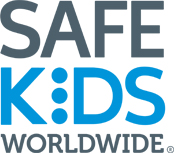How to Store Medicine Safely
- Keep medicine up and away, out of children’s reach and sight even medicine you take every day. Kids are naturally curious and can easily get into things, like medicine, if they are kept in places within their reach. Put all medicines and vitamins at or above counter height where kids can’t reach or see them.
- Consider places where kids get into medicine. Kids get into medicine in all sorts of places, like in purses and nightstands. Place bags and briefcases on high shelves or hang them on hooks, out of children’s reach and sight.
- Remember products you may not think about as medicine. Health products such as vitamins, diaper rash creams and even eye drops can be harmful if kids get into them. Store these items out of reach and sight of children, just as you would over-the-counter and prescription medicines
- Choose child-resistant packaging whenever possible. Keeping medicine in a child-resistant container is important, but child resistant does not mean child-proof. With a little time and persistence, some children may still be able to get into child-resistant containers. If you are using pill boxes or other containers that are not child-resistant, it’s even more important to store these out of children’s reach and sight.
How to Give Medicine Safely
- Read the label and know what's in the medicine. Check the active ingredients listed on the label and make sure you don’t give your child more than one medicine with the same active ingredient.
- Follow the dosing directions on the medicine label. Even if you have used the medicine before, sometimes the directions about how much medicine to give change.
- Use the dosing device that comes with the medicine. A teaspoon or tablespoon used for cooking won't measure the same amount as the dosing device.
- Write clear instructions for caregivers about your child’s medicine. When other caregivers are giving your child medicine, they need to know what medicine to give, how much to give and when to give it.
How to Get Rid of Medicine Safely
- Clean out unused and expired medicines in your home. Reduce the risk of kids getting into medicine by getting rid of unused or expired medicine. Many communities have a medicine take-back program. This is an easy way to get rid of your unused or expired medicine.
- Get rid of medicine safely. Pour the medicine into a sealable plastic bag and add water to dissolve the medicine. Add kitty litter, sawdust or coffee grounds to the plastic bag to make it less appealing for children or pets before throwing it away. Check the Food and Drug Administration (FDA) recommendations for medicines that should be flushed down the toilet.
Talk to Your Kids about Medicine Safety
- Teach your child that medicine should always be given by an adult. It's important for kids to know that they should not take medicine on their own. Parents and caregivers can help make sure they are taking it correctly.
- Don't refer to medicine as candy. While saying medicine is candy may make it easier to get younger children to take medicine, it may encourage them to try it on their own.
- Model responsible medicine use. Make sure to store medicine out of reach of children, read drug facts and prescription labels before taking medicine and follow the dosing instructions.
- Teach older children how to take medicine responsibly. Need tips on how to teach older children about medicine safety? Check out the Scholastic OTC Medicine Safety Program for more information on this topic.
How to Respond in a Poisoning Emergency
- Save the Poison Help number in your phone and post it visibly at home: 1-800-222-1222. Specialists at poison control centers provide free, confidential, expert medical advice 24 hours a day. They can answer questions about how to give or take medicine and help with poison emergencies.
Share Medicine Safety Information
- Share medicine safety information with family and friends. Teach other caregivers such as family members, babysitters and friends about medicine safety and make sure they know the Poison Help number. For more poison prevention information, visit the American Association of Poison Control Centers.
